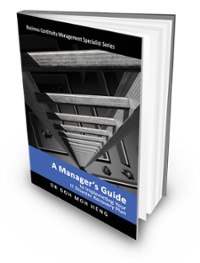 Pre-reading [BL-DR-4] [M3-S1] When managing a IT disaster, what is the life cycle? How is this life cycle broken down into in logical steps?
Pre-reading [BL-DR-4] [M3-S1] When managing a IT disaster, what is the life cycle? How is this life cycle broken down into in logical steps?
Disaster Recovery Life Cycle
The main processes that form the complete DR Life Cycle encompass the the 6 Rs’ is referred to as the DR Life Cycle.

The 6 R’s of DR Planning or DR Life Cycle
Components of a DR Life Cycle


The Components of 6 R’s within the DR Life Cycle
In addition, these are the additional elements of the DR Plan. It should address the main areas:
Reduce
- Minimize, avoid or prevent the threats from occurring
- Prepare and exercise DR plan
Response
- Detection:
- Detect a disaster event when it happens
- Notification:
- Notify the core DR team for initial assessments and verifying whether a disaster has happened
- Damage Assessment:
- Assess the degree of damages done and deciding on activation of DR Plan
- Plan Activation:
- Activate the execution of the DR Plan
- Disaster Declaration:
- Upon decision to declare a disaster, the Disaster Declaration Officer will contact the recovery center to declare disaster
- Check and confirm subscribed resources are make available
- Activate specialized DR Team to be on on-site and standby
- Confirm time to access the recovery center
- Team Mobilization:
- Notification Call-Tree
- Activate all team members to assemble at designated assembly center or alternate sites
- Retrieve vital records from offsite storage
- Activate key support vendors
- Inform relevant parties
Recover
- Execute the recovery procedures and recovering the business operation at a temporary site
- Travel to Recovery Centre:
- Ensure that all team members need to be familiar with the location of the recovery center
- Consider validity of travel documents and work permit or VISA to enter another country for support to overseas offices
Re-sync
- Re-synchronize Data
- Input data captured during manual business operations
- Perform audit check of data entered
Resume
- Test critical components of each application as per DR Plan
- Verify that the correct data are restored by Development or Application team
- Perform audit on the readiness & integrity of data & security
- Authorize data to be released for production
Return
- Reconstruct the original site or acquire a new permanent site to return to the normal business operations
- Prepare primary site
- Equipment replacement or relocation
- Re-establish telecommunication
- Restore systems, network, and application.
- Conduct a parallel run to ensure system at primary site is stabilized
- Before cut-over to primary site from recovery center,
- Review of IT ends users and auditors
- Request recovery center to standby for at least one day after cutover to serve as backup
Timing of DR Life Cycle
This is the duration or estimated timing for the DR life cycle.
- Reduce - the period before the disaster
- Response - the hours and days immediately following the disaster
- Recover - the period from the occurrence of the disaster until temporary operations are restored
- Re-sync - the re-synchronization of data for all the systems
- Resume - the resumption of business functions and operations as the systems are gradually made available
- Return - the time when operations return to normal
Reference
Goh, M. H. (2016). A Manager's Guide to Implementing Your IT Disaster Recovery Plan. Business Continuity Management Specialist Series (2nd ed.). Singapore: GMH Pte Ltd.
Extracted from "Chapter 12: Plan Development"
More Information About IT DR Blended Learning
To know more about our blended learning program and when the next course is scheduled, feel free to contact our friendly course consultant colleagues via sales.ap@bcm-institute.org. They are the BL-DR-3 Blended Learning DR-300 IT Disaster Recovery Implementer and the BL-DR-5 Blended Learning DR-5000 IT Disaster Recovery Expert Implementer.
 |
 |
 |
 |
 |
 |
 |
Please feel free to send us a note if you have any of these questions to sales.ap@bcm-institute.org |
 |




